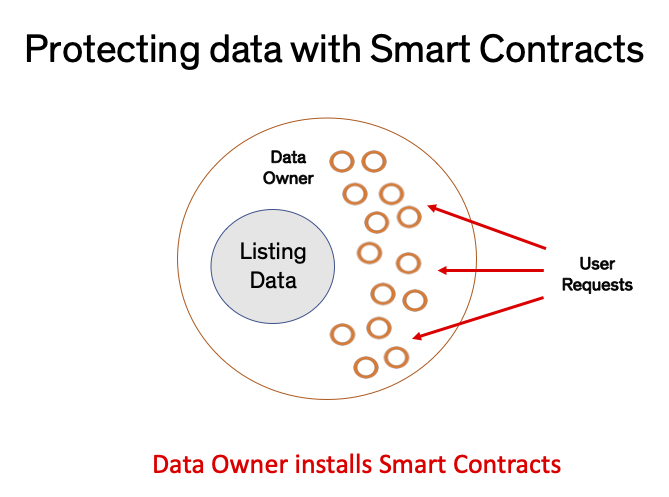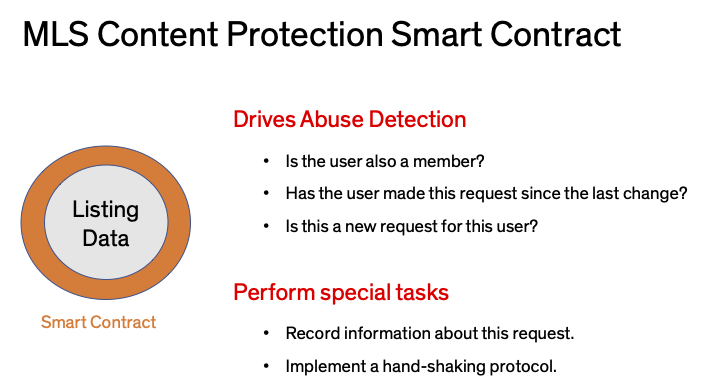Information about your lifestyle and preferences is hard to control across many websites. The way we do this today is functional but cumbersome because the underlying databases are being synchronized. Synchronizing means that data is being copied and keeping the copies up to date is the responsibility of the data vendors. The technical staffs work out the details. Blockchains are designed to distribute data while avoiding the complexities used today.

As discussed in a previous post, Smart Contracts “surround” the data with business rules. Rules cannot be bypassed and users need to identify themselves when making requests. This allows you to control what information is public and what is private on a case-by-case basis if desired. Only you can see private information on the blockchain. A group of data owners can adopt the same business rules around their data.
You control when policies are added or replaced. For example, Policy X can easily be replaced with Policy. This makes it possible to support multiple versions of a policy.
It is highly probable that business data protection will require multiple Smart Contracts. Complex policies can be broken down into pieces, each having its own Smart Contract. Users specify the Smart Contract to use for their requests and do not need to know the location of the data. I will further address potential types of Smart Contracts in a later post.

In a future state, you will be able to purchase policies from competing vendors and could include offer integrity, clean-up, or content creation packages. Another source for these offerings in the real estate industry could be the MLS.

Just as information is standardized on MLS input sheets, Smart Contracts control how your information is exposed to the public. A Smart Contract could be built to handle this situation with multiple display options such as:
- Public – The data is resident on the blockchain and can be displayed.
- Available – The data is resident off of the blockchain and connection information is supplied.
- Private – The data is resident on the blockchain and cannot be displayed. The private data fields are not advertised so users do not know they exist.
One future for the MLS would be as a publisher of policies that members install around their data.

Leave a Reply